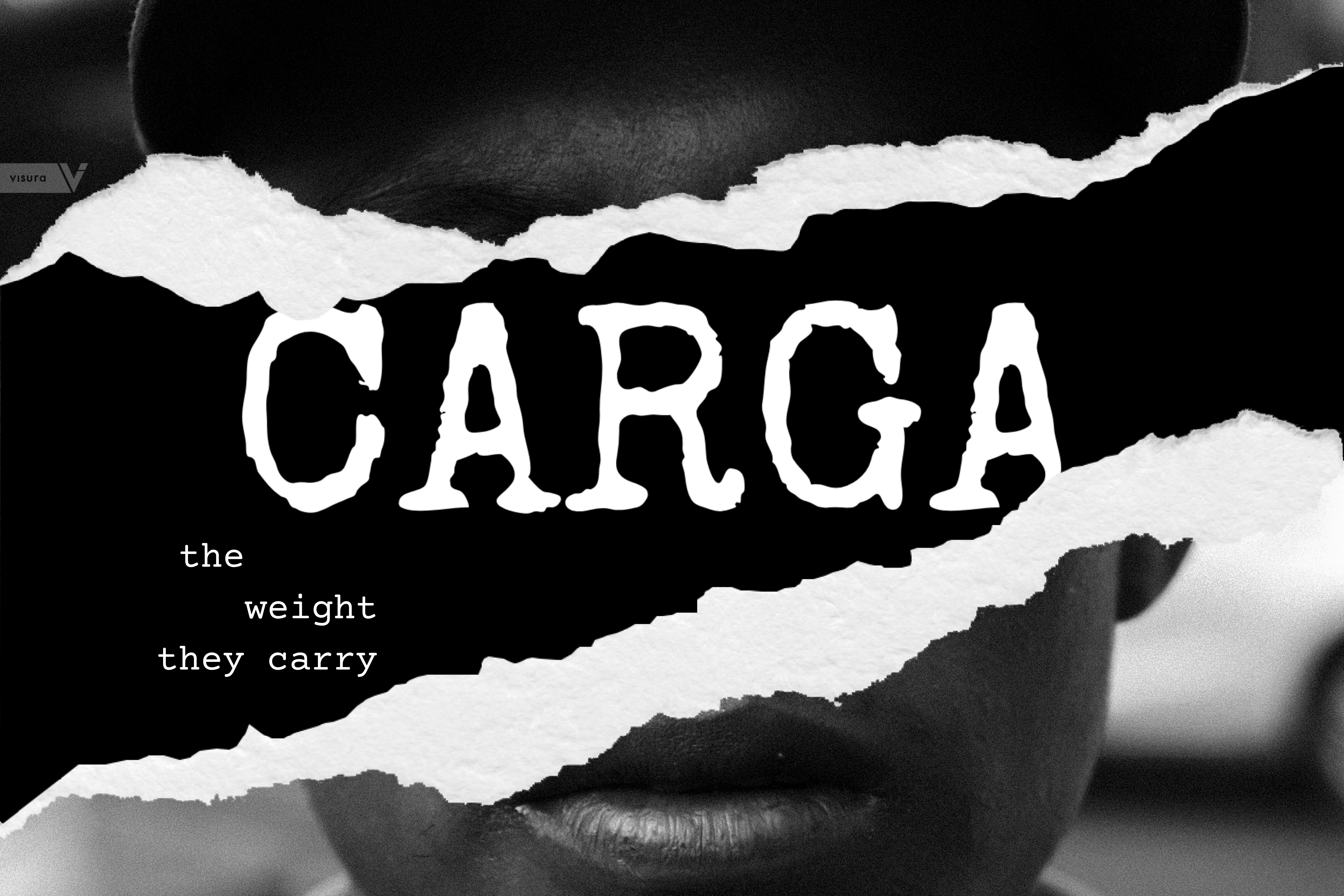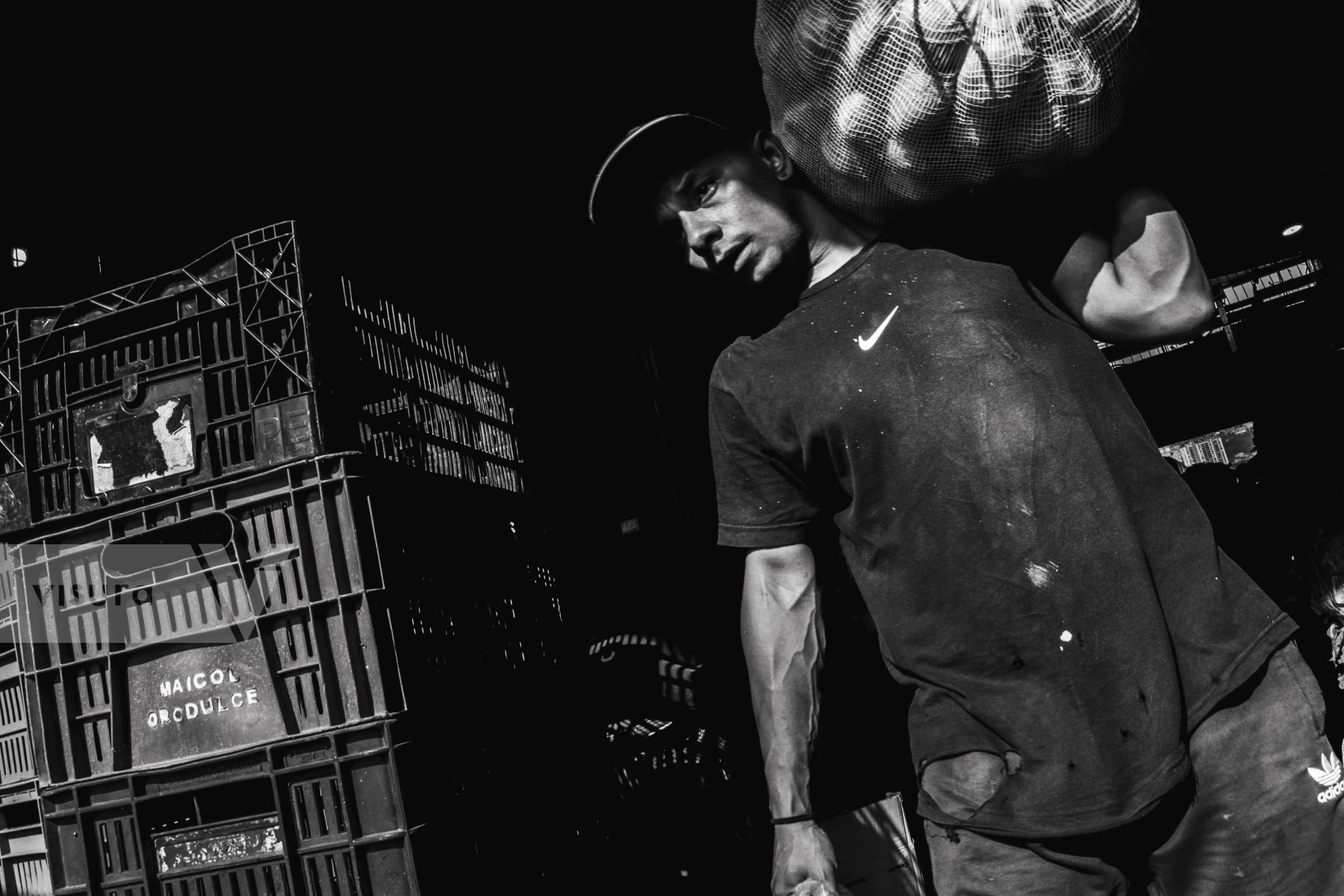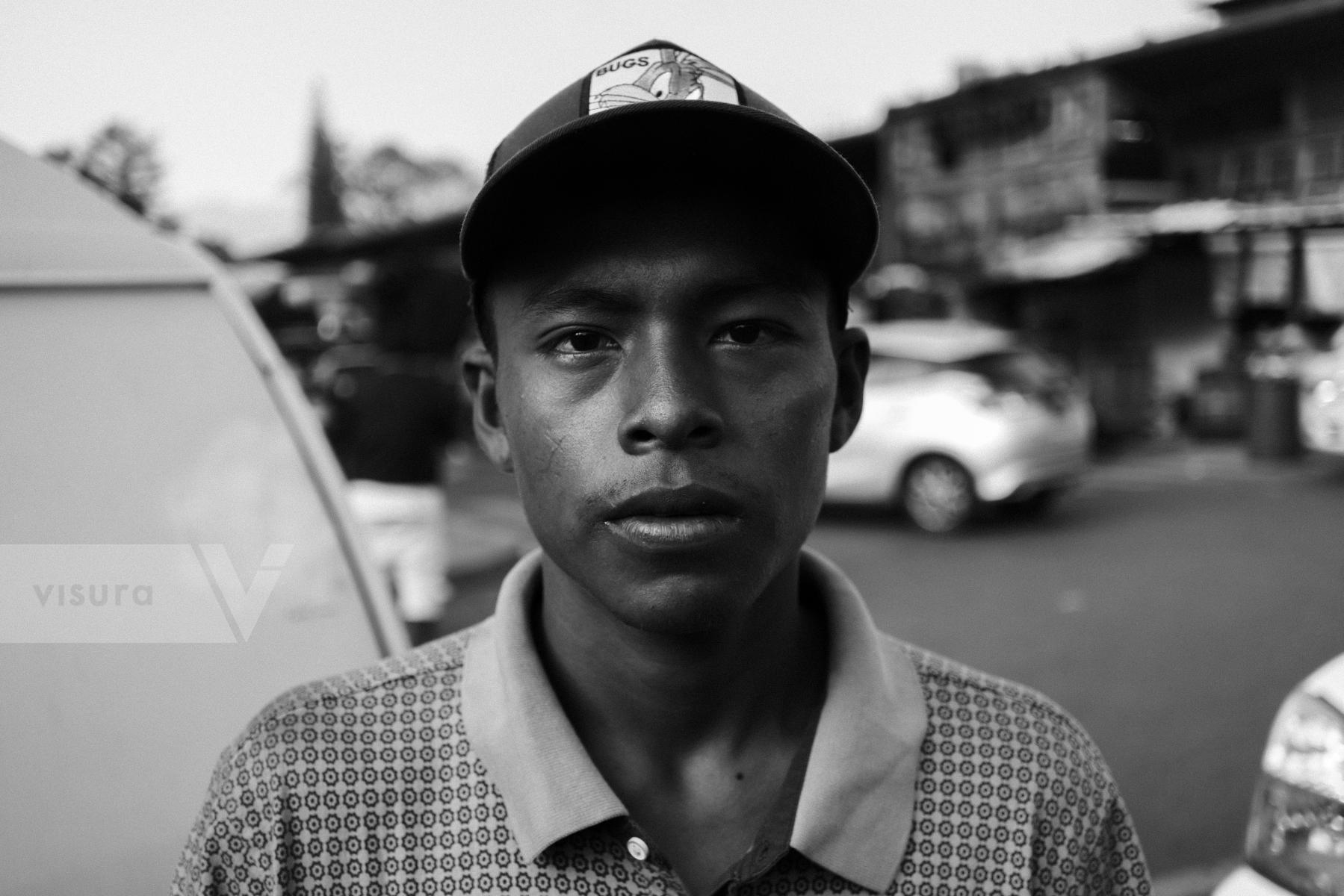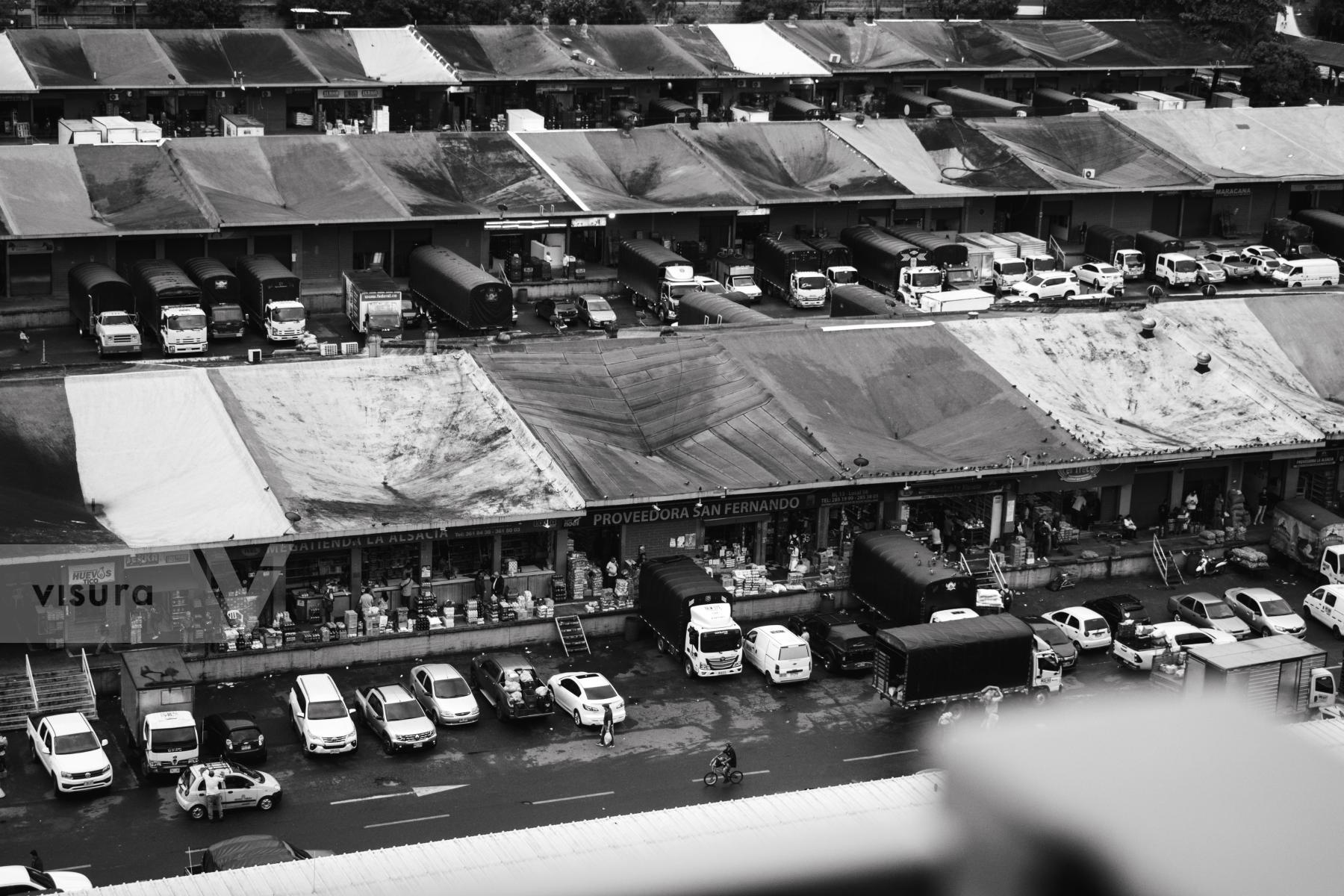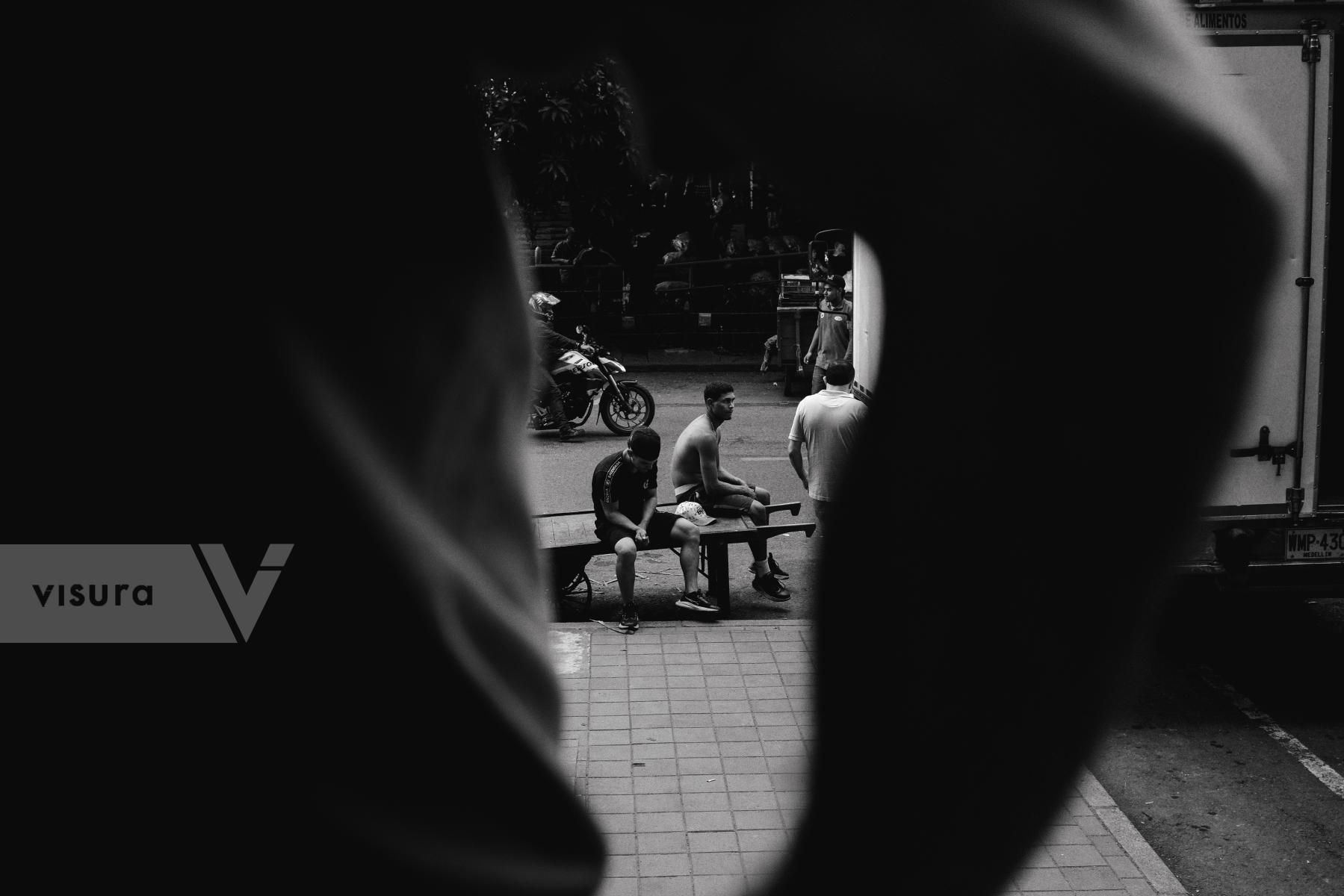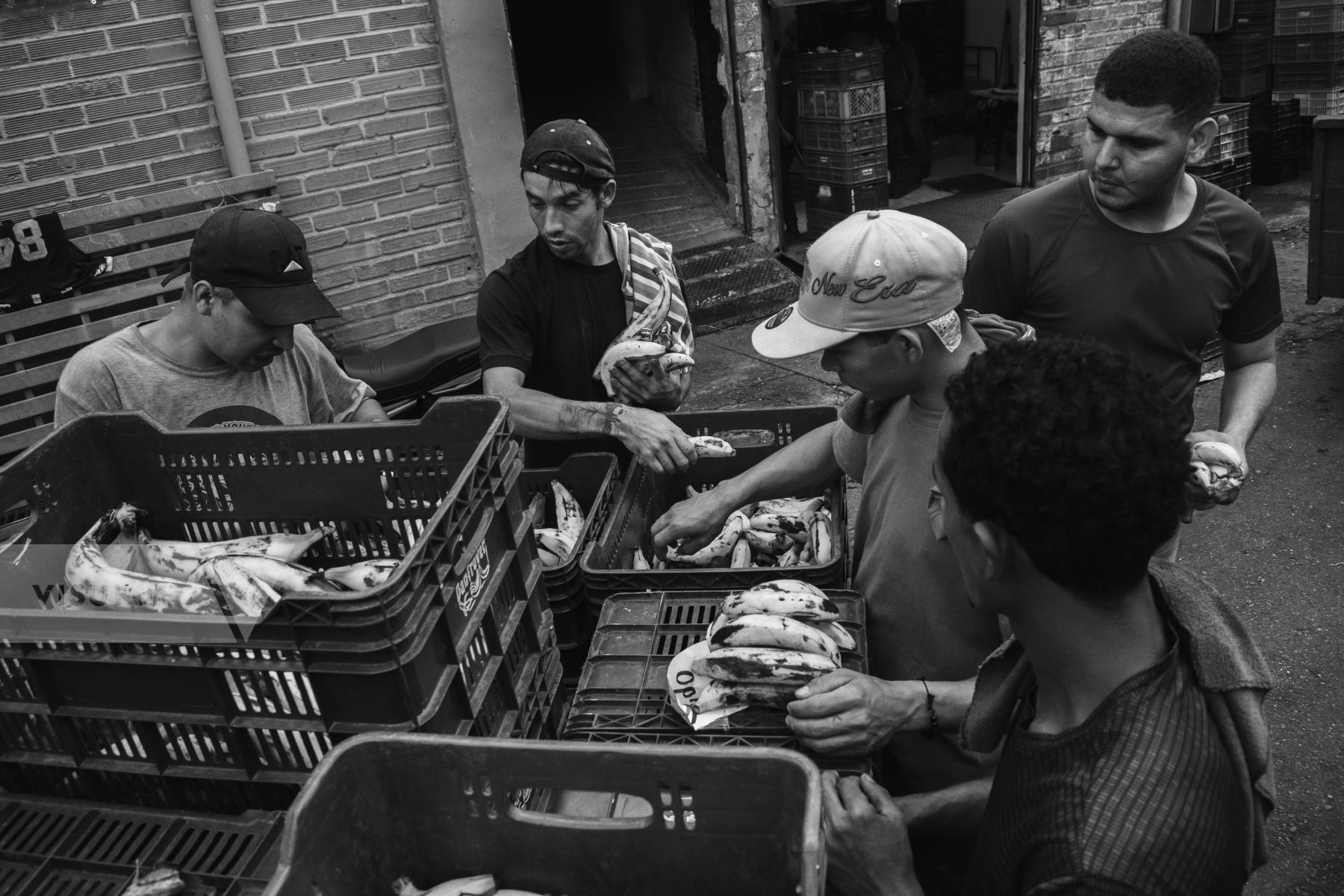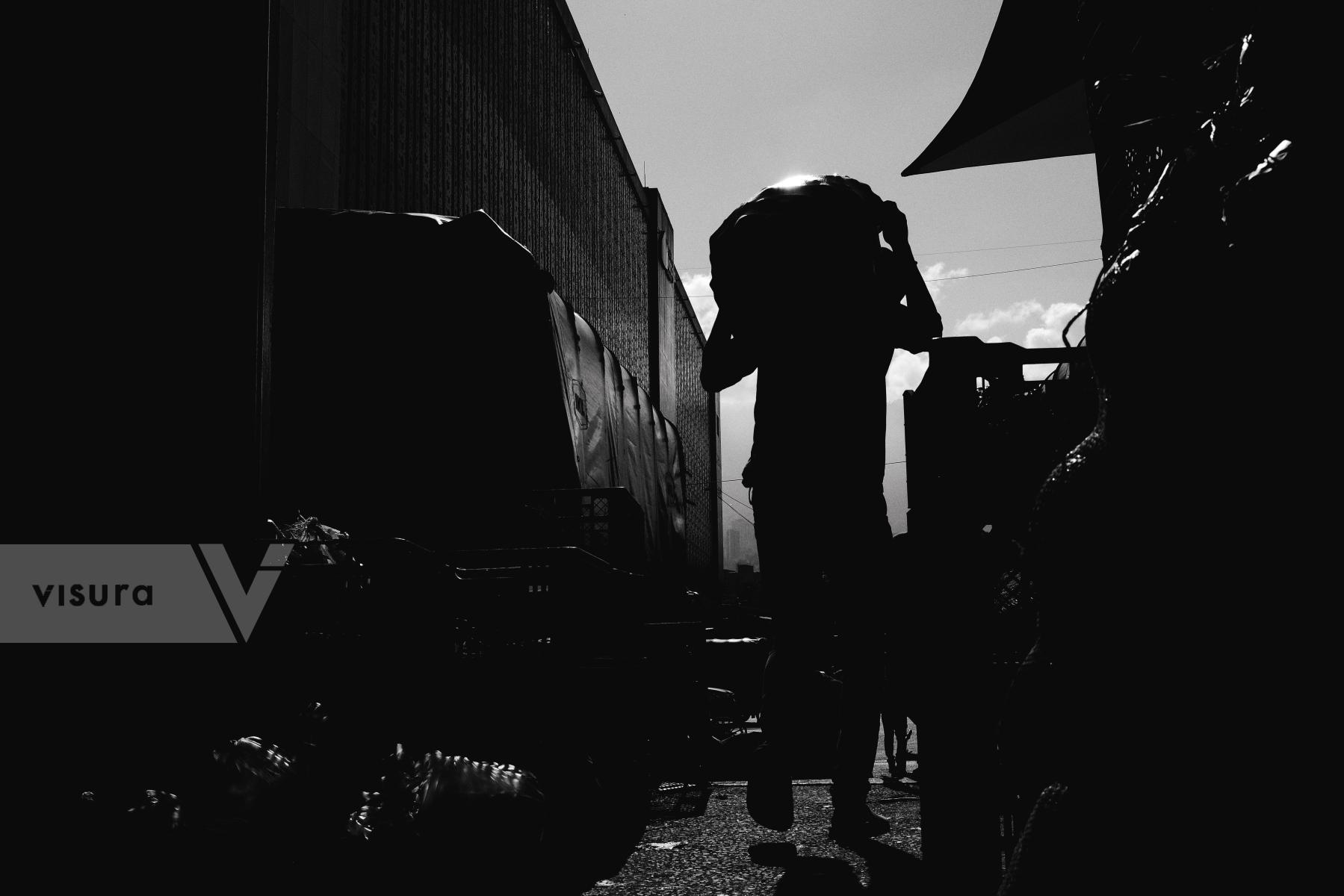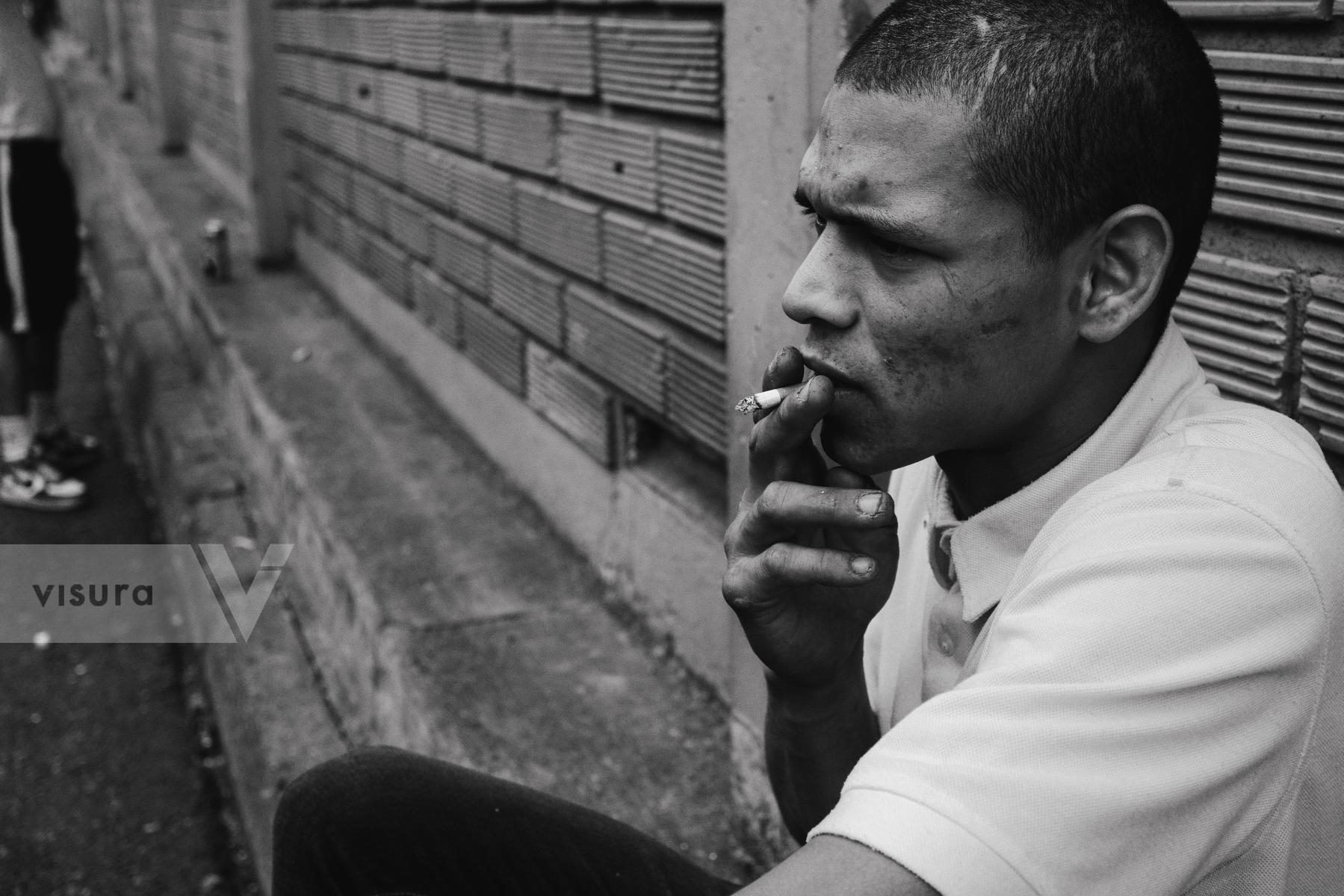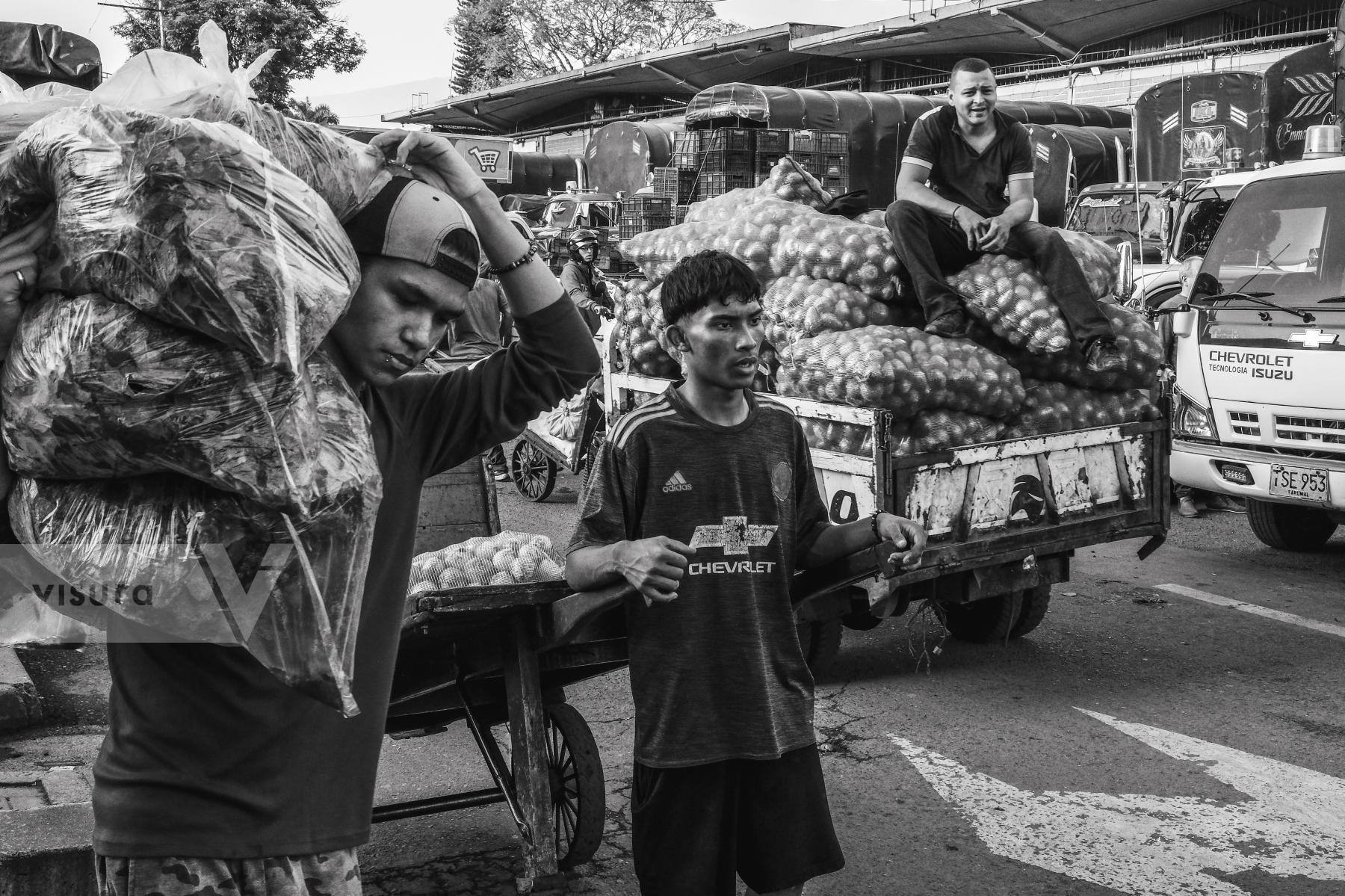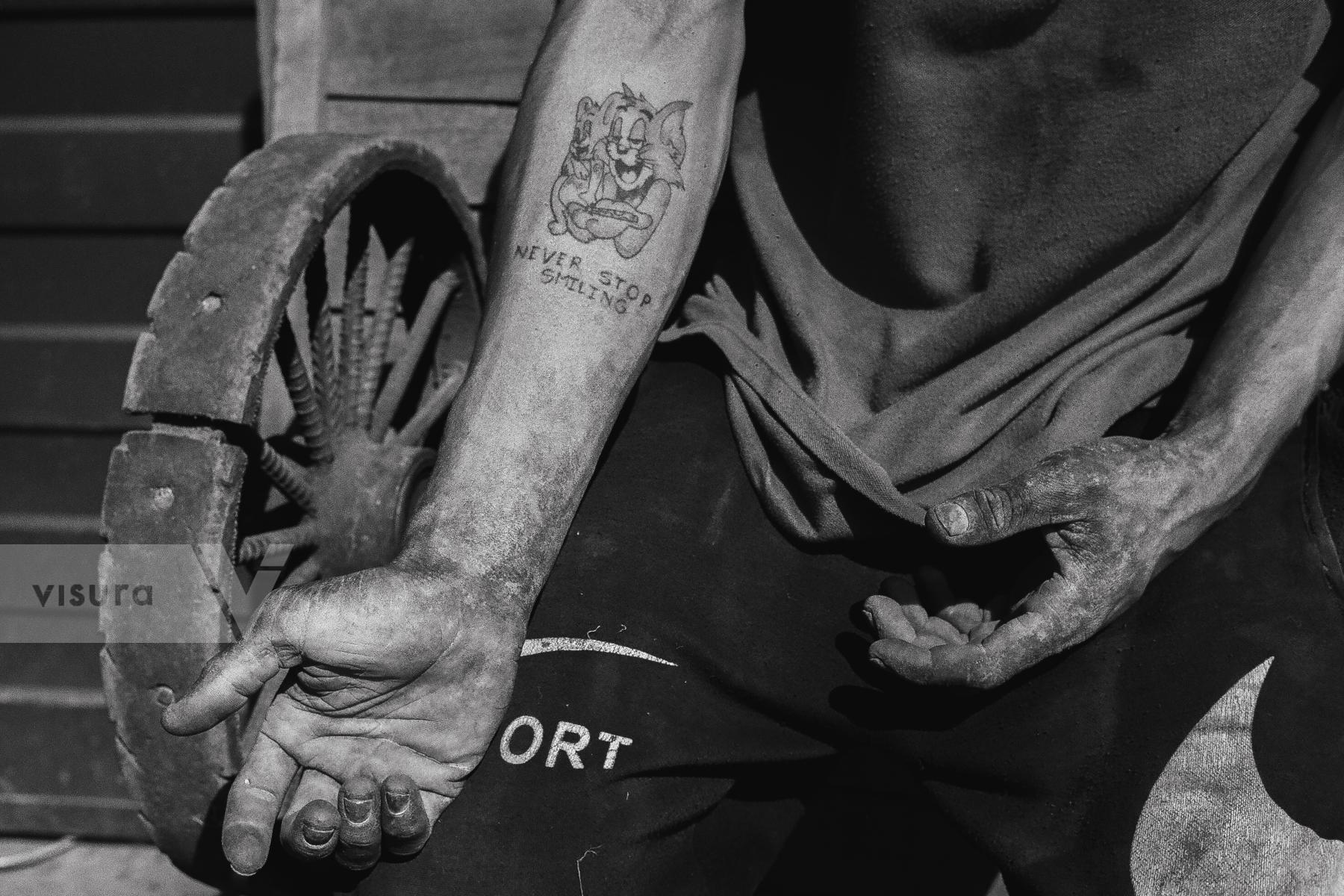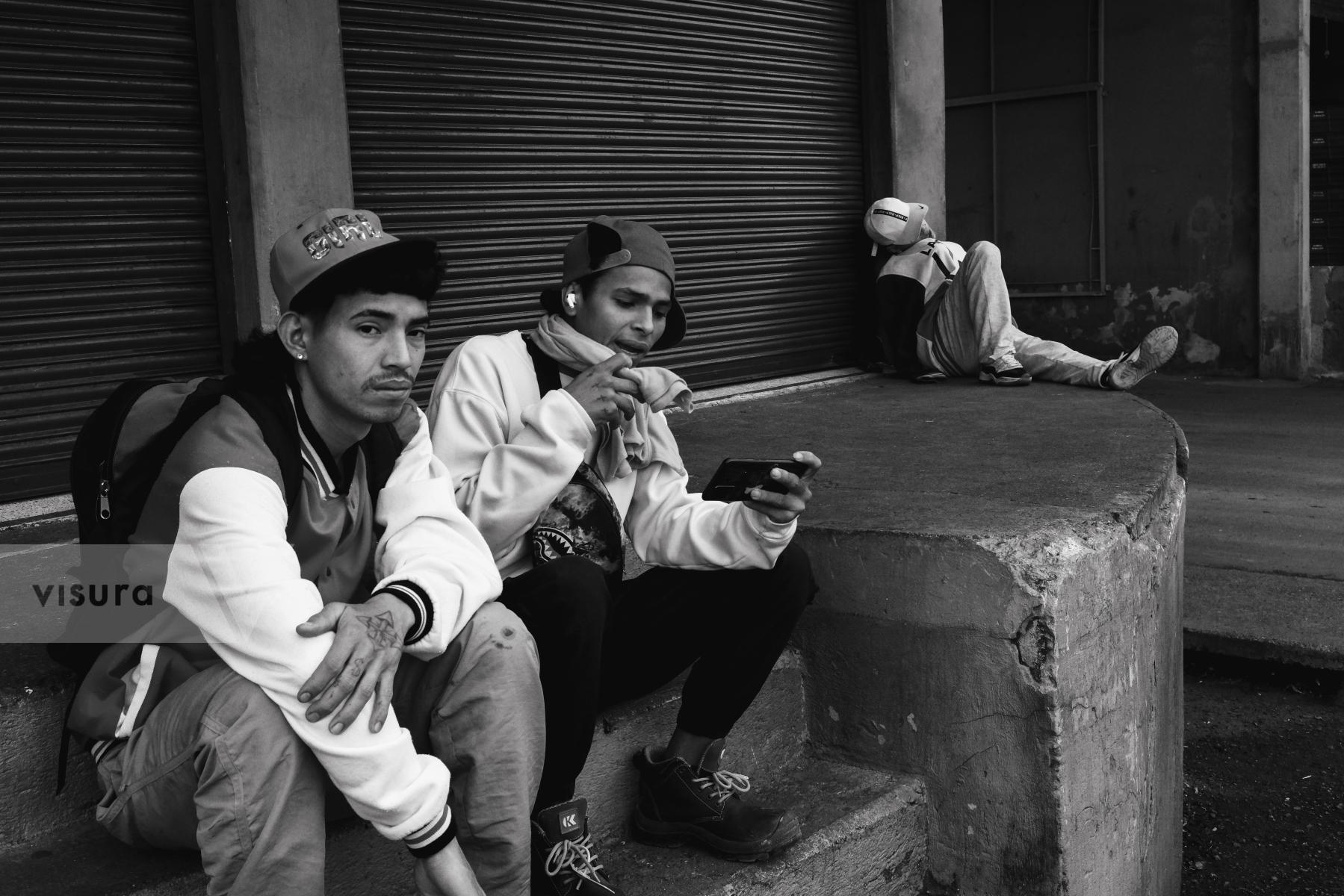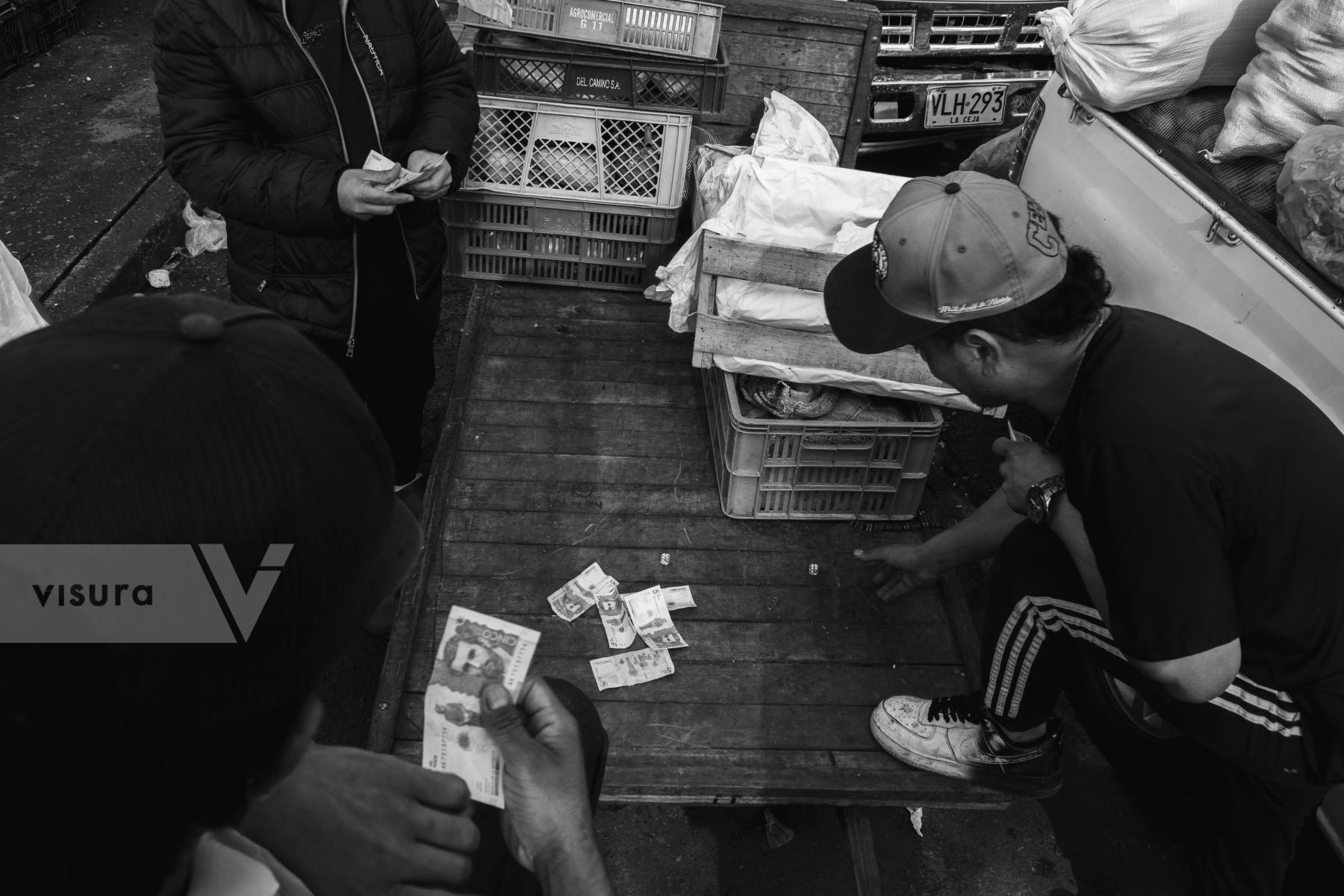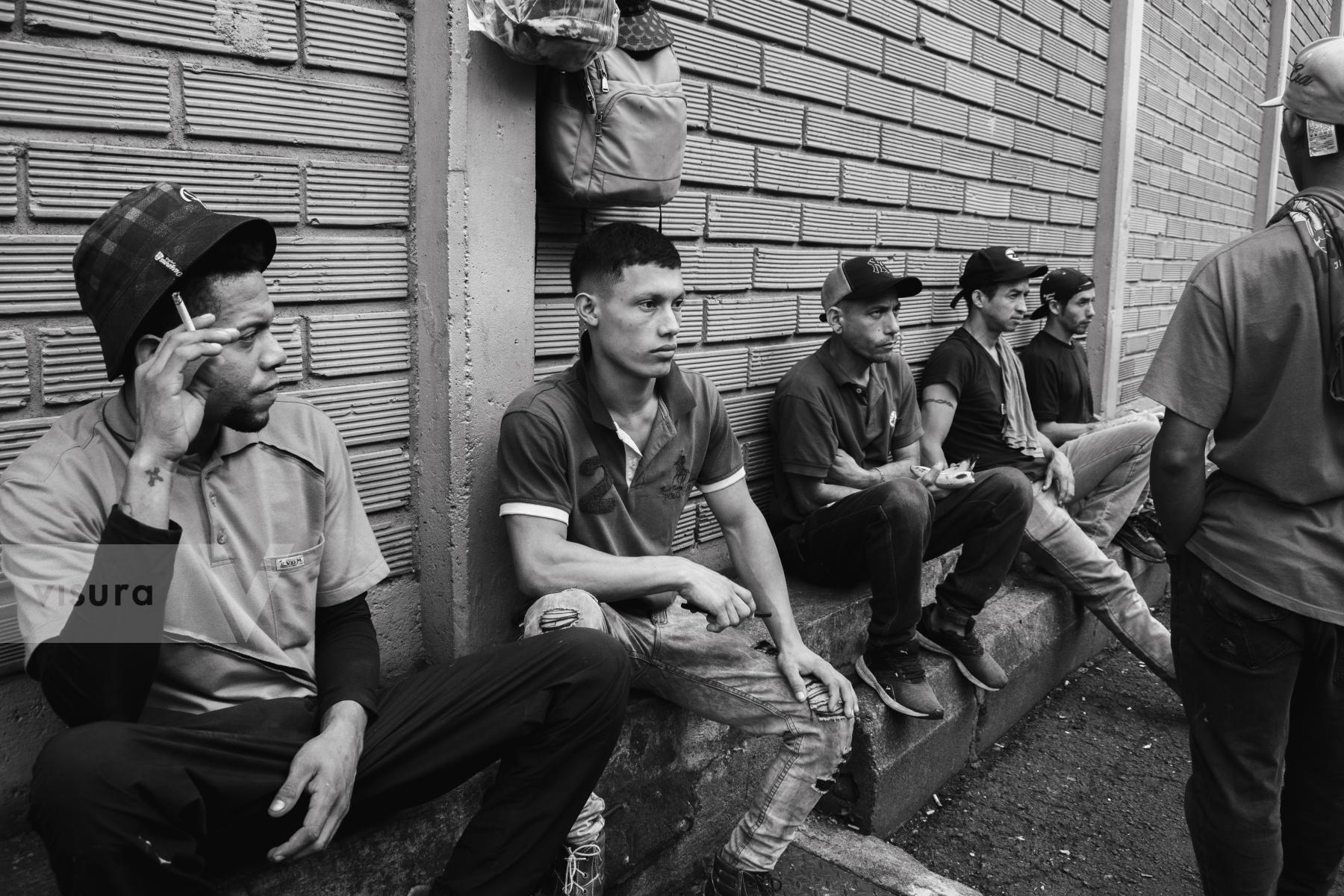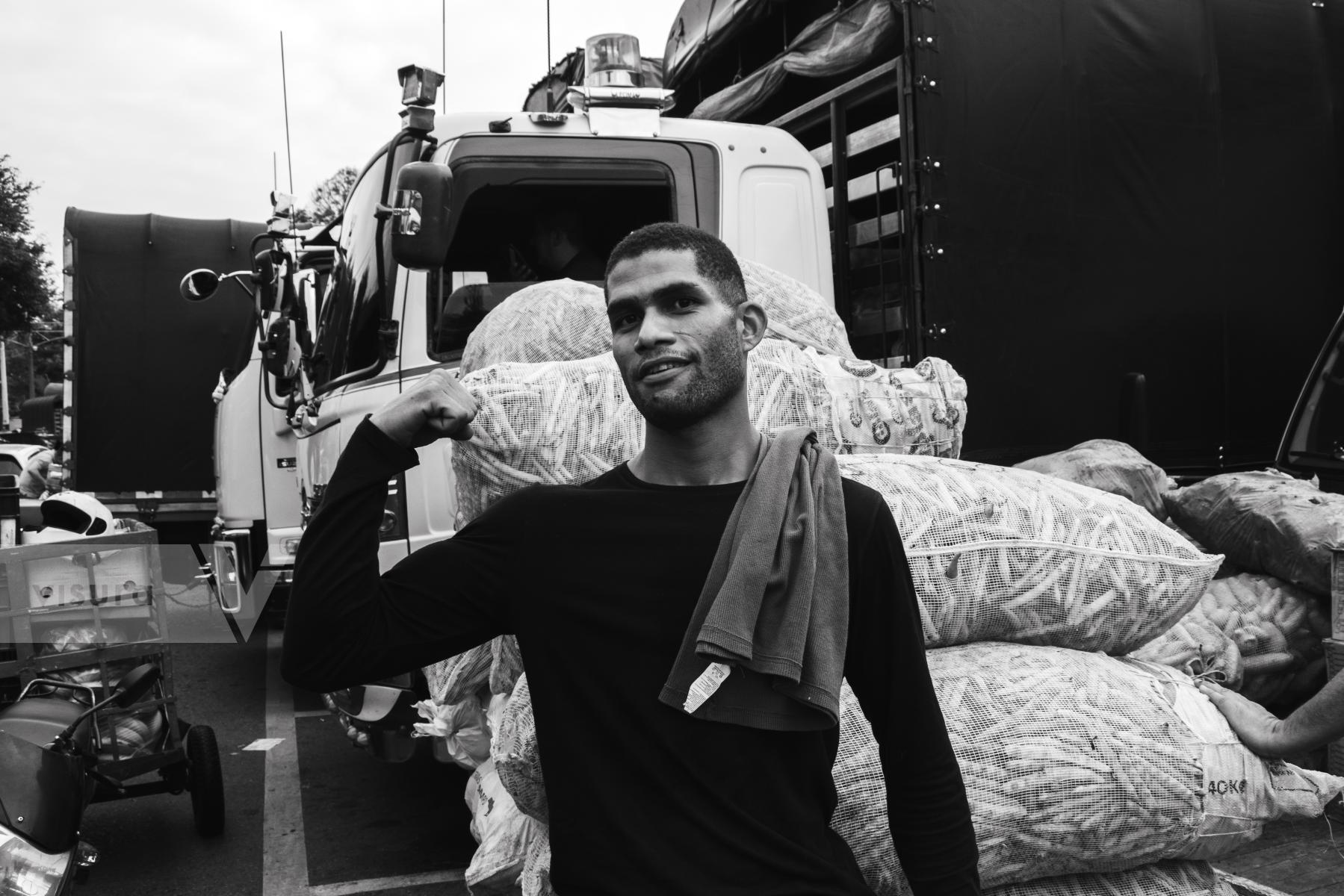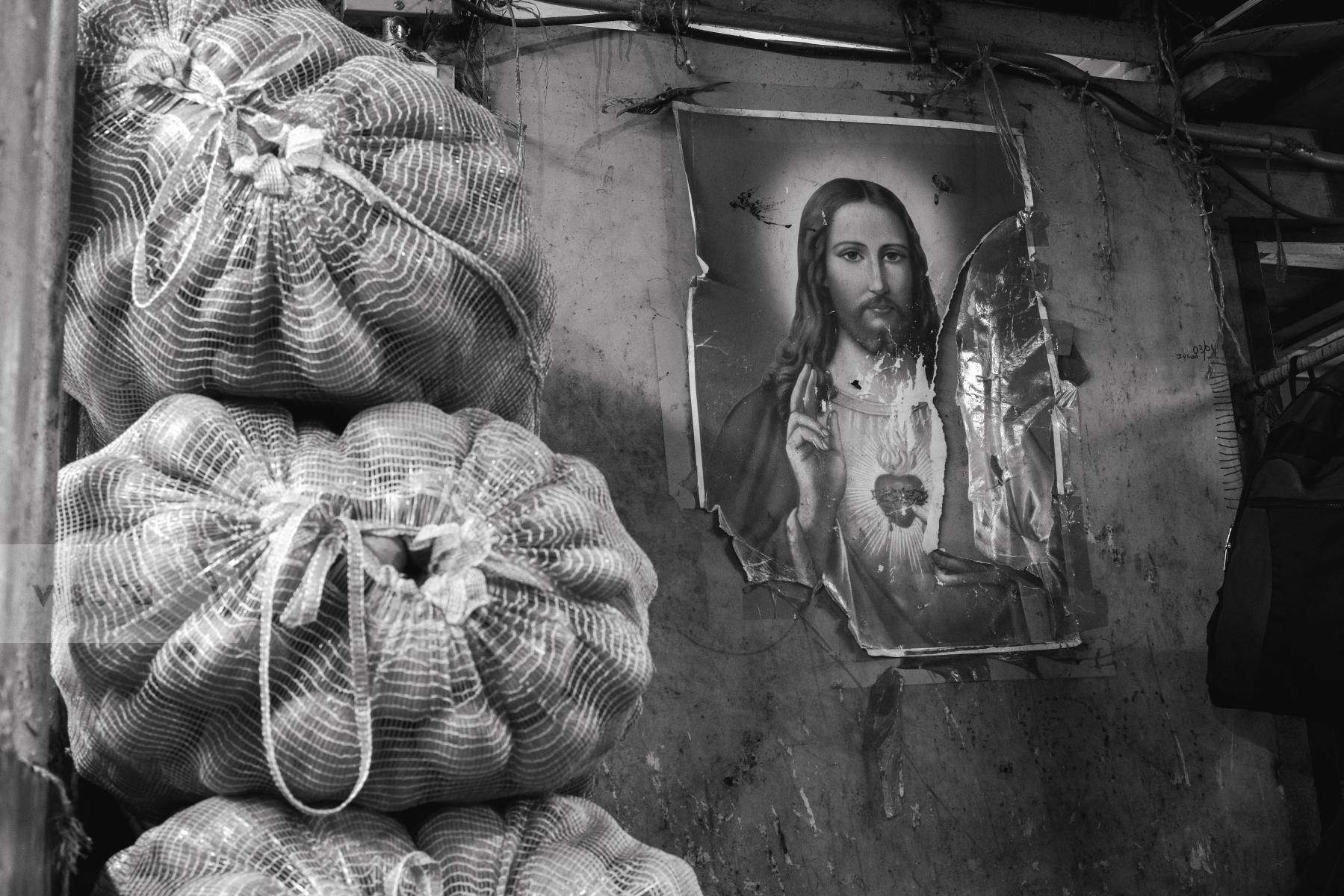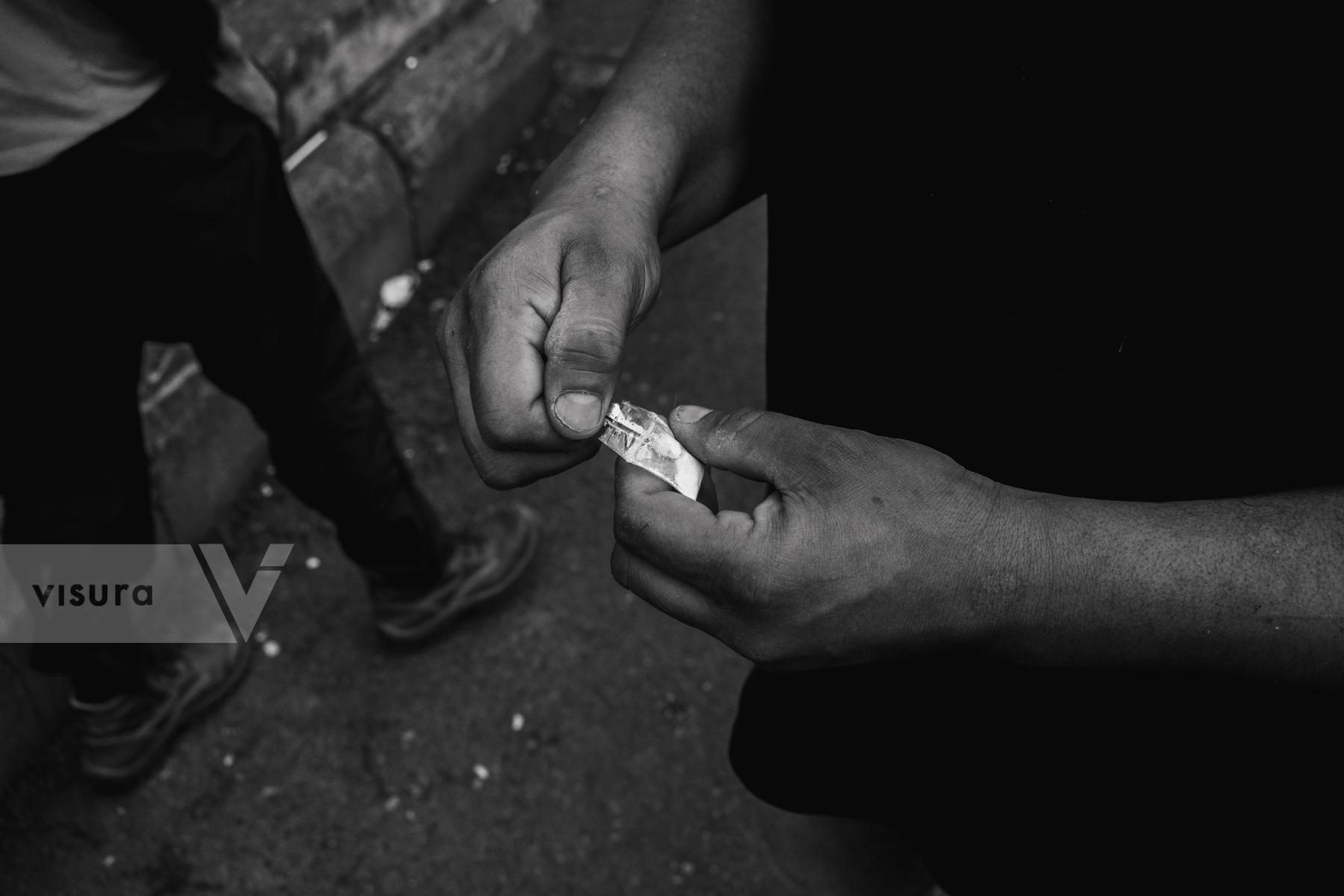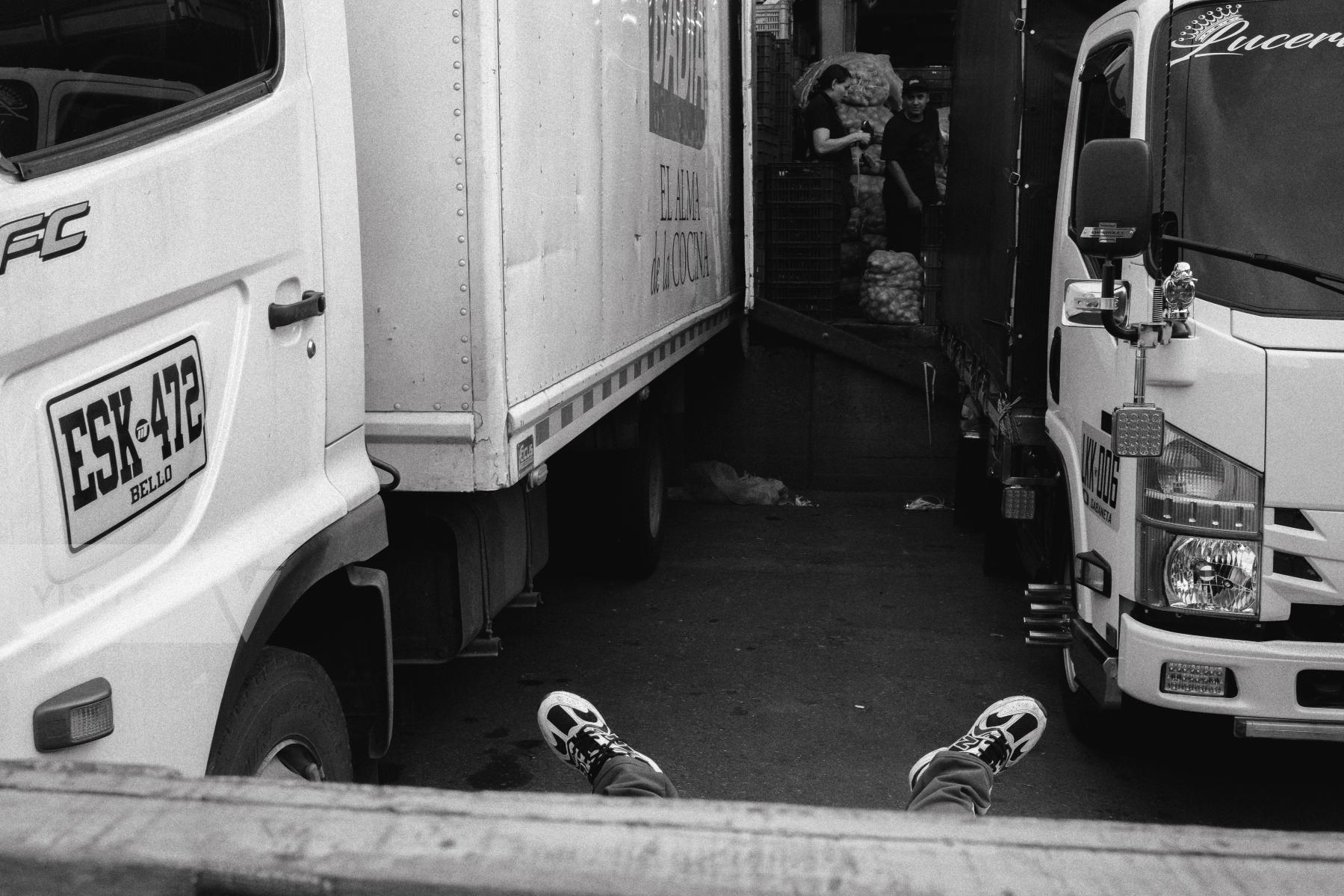Caption:
(Scroll right)
The Weight They Carry
In recent years, more than 8 million Venezuelans have fled their country in search of stability - one of the largest migration crises in the world. Colombia has taken in the greatest share, and among the cities that have absorbed this influx, Medellín’s Plaza Mayorista stands as a hub of both opportunity and hardship.
Here, weight defines everything.
The physical weight of sacks filled with potatoes, onions, and plantains - often exceeding 60 kilograms - hauled on the backs of young men through narrow alleys between stalls. The emotional weight of distance from home. The psychological weight of uncertainty, of living day to day, job to job, with no safety net. These burdens, invisible to most who pass through the market, press constantly on the migrants who work within it.
The cargadores, or carriers, are mostly Venezuelan men in their early twenties. Hundreds pass through Plaza Mayorista, some staying for months, others only a few days, depending on whether they find work. Aldair, just 20 years old, left behind a wife, Angela, and two children in Caracas. He arrived in Medellín two weeks ago and is still adjusting. Like many others, he came with little more than the clothes on his back - no savings, no guarantees, only the hope of finding work. Finding work in Mayorista has been difficult, but his voice carries a quiet optimism: his dream is to return to Venezuela and be reunited with his family. Angel, 21, also has a newborn back in Venezuela. He talks about Real Madrid and watches games when he can. For him, Medellín is just a stop on the way - a means to earn, to send money home, and to hope things eventually improve.
Their days begin before sunrise, and often end well into the afternoon. There are no contracts, no guarantees, no fixed pay. Work comes in waves. On a good day, they might earn 50,000 pesos (12USD) - but most days fall short. With rent to split and families to support, there’s little left over. Even securing the day’s work can be uncertain: new faces arrive each week, old ones vanish. The labour pool shifts constantly. It's a grind that rewards strength, stamina, and luck.
But the heaviest loads aren’t the ones on their backs. Many battle loneliness, stigma, and a deep unease about the future. Their presence is tolerated but rarely welcomed. They are seen as transient, disposable. And yet, they show up. Not necessarily because they believe life will get better, but because stopping simply isn’t an option.
The market hums with tension and tempo. The sharp tang of overripe fruit mingles with the acrid sting of diesel. Trucks beep as they reverse into tight corners. Whistles and shouts slice through the air, vying for attention. Deals are made in quick, rhythmic bursts. The place doesn’t rest, nor do those who keep it running.
Many of the young men are hesitant to open up. Bonds form slowly, forged more through shared silence and routine than conversation. Still, moments of levity break through - a joke passed between loads, a pause to rest in the shade, a smile that says: we’re still here. These small gestures speak to a quiet endurance, a way of holding on to something human in the midst of all the weight they carry.
And for some, the pressure becomes too much. With no support systems and few paths forward, some turn to substances - a brief escape from the weight they carry. These are not moral failings, but reflections of what happens when people are forced to rebuild their lives under immense strain and with little help.
One cannot help but notice how young many of them are. Many are barely adults, yet the choices before them demand more than most are ready for. They grow up fast. Not all make the right decisions. But each one navigates an adult world shaped by forces far beyond their control.
Most hope to return home one day, especially those with children. Some consider staying, daring to imagine a new life in Medellín. For now, though, survival is the only certainty. And Plaza Mayorista, with all its chaos and movement, remains both a lifeline and a crucible.
This series is about that weight: visible and invisible. Through these portraits and moments, we glimpse lives shaped by migration, labour, and sacrifice. We see how young men shoulder far more than they should ever have to. And in carrying that burden, their humanity persists: complex, quiet, and unyielding.
Medellín, August 2024 - January 2025

